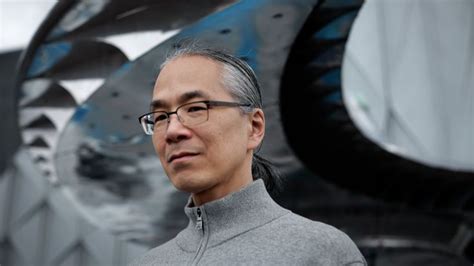Ted Chiang’s receipt of the prestigious PEN/Faulkner Foundation’s short story prize is a testament to his unparalleled mastery of the short story form. Chiang’s work has always been marked by a brilliant interplay of science fiction, philosophy, and deeply human narratives that challenge readers to think beyond the page. His renowned story ‘Hell is the Absence of God’ remains a favorite among many, noted for its powerful characterization and evocative imagery, elements that are often discussed with reverence by fans eager to delve into its layers again and again.
The discussion among readers reveals not just admiration but a complex appreciation of what makes Chiang’s work unique. The characters and language in his stories are more than just features; they create a vivid tapestry that readers find themselves returning to. One user highlights a favorite line, ‘And God sent him to Hell anyway,’ showcasing Chiang’s ability to blend profound philosophical questions with compelling narrative arcs. Such sentences are not merely remembered but also held dear, illustrating the lasting impact of his prose.
Chiang’s preference for short stories over novels invites an insightful debate on the nature and essence of storytelling. One commenter notes that the absence of a high word count requirement might have contributed to the higher quality of his work, focusing on the economy of words and the elimination of filler content. However, another aptly counters that the distinction between short stories and novels is not merely about length but rather the narrative and structural differences. Indeed, the power of a good short story lies in its ability to convey complete and profound ideas in concise frameworks.
The literary world is rich with examples of short stories that pack as much punch as full-length novels. Classic works like George Orwell’s ‘Animal Farm’ and Albert Camus’ ‘The Stranger’ are powerful narratives packed into shorter forms. Such stories provide readers with intense, immersive experiences without the commitment to extensive reading hours. Chiang’s own work fits neatly into this tradition, often praised for its density of ideas and depth of exploration within a limited word count.
It is fascinating to observe how Chiang’s personal approach and career choices have shaped his narrative style. His dual life as a technical writer and author offers a clue to his meticulous attention to detail and precision in story construction. Such a duality might explain why his stories come across so clear and profound, leveraging his technical skills to enhance his creative expressions. His limited yet highly impactful bibliography underscores a ‘quality over quantity’ philosophy that many readers seem to admire.
Comparisons with other writers in the genre hint at the unique niche Chiang occupies in speculative fiction. Writers like Greg Egan, with his ‘math-fi,’ offer similarly mind-bending narratives, yet om a technical substrate. In contrast, Chiang’s narratives often explore broader philosophical themes, making them accessible to a diverse audience while still indulging those interested in the intellectual rigor typical of hard science fiction. Ted Chiang’s ‘Story of Your Life,’ which was adapted into the movie ‘Arrival,’ demonstrates how his ideas translate across mediums while still retaining their core intellectual and emotional depth.
Chiang’s works are not just intellectually stimulating but also deeply human. Stories like ‘The Lifecycle of Software Objects’ and ‘Exhalation’ offer ethical and emotional explorations that resonate with readers on multiple levels. ‘The Lifecycle of Software Objects’ raises questions about AI ethics, mirrored by real-world dilemmas in the tech industry. Such stories not only entertain but provoke thought about contemporary issues, making Chiang not just an author but a thinker engaging with the zeitgeist.
Ultimately, Ted Chiang’s recognition by the PEN/Faulkner Foundation represents more than a personal accolade – it signifies a broader appreciation for the art of the short story. His success creates an opportunity to celebrate and analyze the intricate ways short stories engage us, provoke thought, and remain memorable long after reading. For those looking to explore more in this genre, works by writers such as Isaac Asimov, Philip K. Dick, and newer voices like Ted Chiang himself provide an immersive gateway into the world of profound and precise storytelling.


Leave a Reply